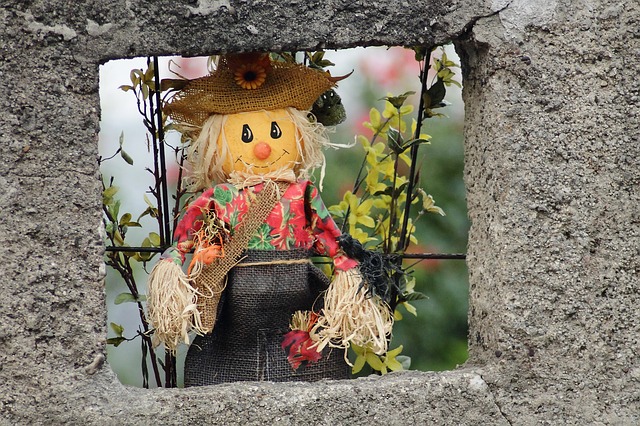Common Greek compound nouns Posted by Ourania on Jul 12, 2017 in Culture, Vocabulary
The Greek compound words are used very frequently. In an older post there was a list of compound verbs. In this post, there are two lists of words composed by the nouns σπίτι (house) and άνθρωπος (man) and another noun or adjective.
σπίτι
-
κουκλόσπιτο [κούκλα (doll) + σπίτι]: dollhouse
Η Νεφέλη πήρε για τα γενέθλιά της ένα κουκλόσπιτο με μπάνιο, κουζίνα, σαλόνι και δύο υπνοδωμάτια. Nefeli got for her birthday a doll house with a bathroom, a kitchen a living-room and two bedrooms.
-
τροχόσπιτο [τροχός (wheel) + σπίτι]: trailer
Δεν τους αρέσει να πηγαίνουν σε ξενοδοχείο. Προτιμούν να ταξιδεύουν με το τροχόσπιτό τους. They don’t like staying in a hotel. They prefer to travel with their trailer.
-
παλιόσπιτο [παλιός (it shows that something is in a bad condition) + σπίτι]; shack
Στον πόλεμο έμεναν σε ένα παλιόσπιτο που δεν είχε παράθυρα. During the war, they used to live in a shack that had no windows.
-
χαμόσπιτο [χάμω (down) + σπίτι]: poor house with low ceiling
Πριν από εξήντα χρόνια, σε αυτή τη γειτονιά υπήρχαν μόνο χαμόσπιτα. Τώρα είναι μία από τις πιο ακριβές συνοικίες της πόλης. Sixty years ago, there were only poor houses in this neighborhood. Nowadays, it is one of the most expensive districts in the city.
-
χωριατόσπιτο [χωριάτης (countryman) + σπίτι]: village house
Τα χωριατόσπιτα έχουν πολύ ωραίες γλάστρες με λουλούδια στην αυλή. The village houses have very nice pots with flowers in the yard.
άνθρωπος
-
απάνρωπος-η-ο [από (privative prefix) + άνθρωπος]: inhuman, cruel
Ο Σπύρος φέρθηκε απάνθρωπα στους γονείς του. Τους έβαλε να πουλήσουν το σπίτι και μετά πήρε τα λεφτά και εξαφανίστηκε. Spiros treated his parents cruelly. He made them sell the house and then took the money and disappeared.
-
υπάνθρωπος [υπό (sub) + άνθρωπος]: subhuman
Το αφεντικό μας είναι υπερόπτης. Νομίζει ότι οι φτωχοί είναι υπάνθρωποι. Our boss is arrogant. He thinks that poor people are subhumans.
-
συνάνθρωπος [συν (and) + άνθρωπος]: the other members of the society, fellow human beings
Ο ιερέας έκανε έρανο για τους συνανθρώπους μας που έχασαν τα σπίτια τους στον σεισμό. Τhe priest organized a fund raising for our fellow human beings who lost their homes after the earthquake (because of the earthquake).
-
λυκάνθρωπος [λύκος (wolf) + άνθρωπος]: werewolf
Η Κωνσταντίνα είπε στα παιδιά ότι την πανσέληνο γίνεται λυκάνθρωπος και την πίστεψαν. Konstantina told the kids that she turns into a werewolf under the full moon and they believed her.
-
μισάνθρωπος [μισώ (to hate) + άνθρωπος]: a person who dislikes the others, misanthrope
Δεν έχει καθόλου φίλους γιατί δεν εμπιστεύεται κανέναν. Είναι μισάνθρωπος. He has no friends because he does not trust anybody. He is a misanthrope.
-
βατραχάνθρωπος [βάτραχος (frog) + άνθρωπος]: frogman
Οι βατραχάνθρωποι έμειναν έξι ώρες κάτω από το νερό. The frogmen stayed for six hours underwater.
-
αχυράνθρωπος [άχυρο (straw) + άνθρωπος]: straw man
Απέδειξαν ότι ο Πρόεδρος ήταν αχυράνθρωπος που εξυπηρετούσε τα συμφέροντα άλλων. They proved that the Chairman was a straw man who served the interests of other people.
-
χοντράνθρωπος [χοντρός (thick) + άνθρωπος]: coarse, impolite
Δεν τους αρέσει ο γαμπρός τους γιατί δεν έχει καθόλου τρόπους. Είναι χοντράνθρωπος. They don’t like their son-in-law because he is impolite. He has no manners at all.
-
υπεράνθρωπος-η-ο [υπέρ (super) + άνθρωπος]: superhuman
Έκαναν υπεράνθρωπες προσπάθειες να σώσουν το παγιδευμένο ζώο. They made superhuman efforts in order to save the trapped animal.
-
φιλάνθρωπος [φίλος (friend) + άνθρωπος]: generous, philanthropist
Δεν έμαθαν ποτέ ποιος ήταν ο φιλάνθρωπος που έκανε δωρεά στο Ίδρυμα. They never found out who was the philanthropist who made a donation to the Institution.
-
χιονάνθρωπος [χιόνι (snow) + άνθρωπος]: snowman
Ο χιονάνθρωπος έλιωσε στον ήλιο. The snowman melt in the sun.

Build vocabulary, practice pronunciation, and more with Transparent Language Online. Available anytime, anywhere, on any device.





